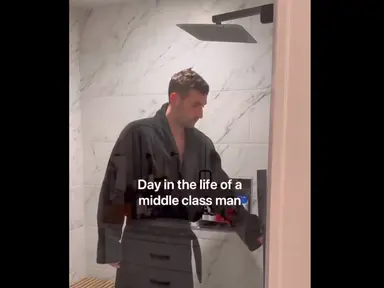This theory of the oversaturation of the digital market is the only logical rationale that helps me reconcile why Kotchy’s Two has not catapulted the artist into the popular conscious. And I fear that Two might become a casualty in the digital maelstrom.
Kotchy (Chad Curlow), has delivered the best record thus far in 2011 – and yes, I am aware that Radiohead’s King of Limbs and James Blake’s self-titled debut were also released this year. Two outshines both. As a follow up to his excellent debut 89, Two, in many ways, is for Kotchy what 1994’s The Bends was for Radiohead — a colossal achievement with a subtle promise of even greater things to come.
As I noted in my review on TV on the Radio, Two, like Young Liars, is the achievement of uncompromising artistic ambition. Pulling from a plethora of styles and genres with exacting and learned precision, Kotchy weaves a tapestry of sound that feels both familiar and foreign. And just when one begins to articulate Kotchy’s influences on a particular track, he takes the song in the opposition direction. It is his slight of hand with song structure that submits the listener to simply follow Kotchy as he guides you through Two’s terrain. This is an album in every sense of the term — not a collection of songs assembled together. And this is not say that one song eases into the next in a manner comparable to a DJ mix or a George Martin production. Each track is distinctly it’s own; often shifting dramatic from the song that came before and that to follow. However, Kotchy congeals these antonymic sounds in a seemingly effortless way, reminiscent of Prince at the top of his game.
Two’s opener, “Sometimes I Get Down”, begins with gentle plucking of an acoustic guitar followed by rolling percussion claps and Kotchy’s hush vocal delivery. The track slides in moments of gentle jazz piano followed by staccato strings. “Getaway” shifts the tone with haunting whine of keyboards, guttural bassline, and rising trumpets. “Don’t Go” has an Otis Redding soul swagger, complete with gentle Rhoades keys and horns, while “Helicopter” has moments freak folk, glitch hop, breakcore, dance hall, and jazz, all crafted with a dizzying frenzy.
Kotchy’s formula for musical splicing is applied equally to his lyrics. His unwound delivery inverts American proverbs and cultural idioms with equal wit and poignancy. “Sometimes I Get Down” opens with the lines: We see these naive babies/with songwriting daddies spitting up what they’re spoon-fed/ And then we idolize them/ Like, oh my god! (It’s the karaoke prizefighter!). Kotchy’s lyrics feel confessional, but neither self-serving nor self-absorbed. His lyrics can be desperate, insightful, and droll all within the same phrase.
“New Addiction”, one of Two’s most pop tracks, examines our cultural obsession with social networking and our online lives. The song begins with Take a picture of me at a party to be immediately followed with the more somber Old friends click and see, that I’m still here. As the track weaves through the dual lives of the real/online narrative, Kotchy ultimately reasons, It’s getting harder to see what’s really here.
Two is a crowning achievement by an artist, who, while still releasing one of the best records of 2011, still seems to be ascending to the zenith of his game. Hopefully, it’s just a matter of time until Kotchy is catapulted into the public consciousness and his music is given the appreciation it so rightly deserves.
I spoke with Kotchy on everything from the new record, his influences, and his views on the promotion, distribution, and artistic control of today’s music industry.
SC: So, to start this off, let’s talk about your music as a whole. Your sound is uniquely its own category. Do you find that your music’s indefinable sound helps or hurts its ability to draw fans?
K: I have no idea, and putting any thought into that leads to a very slippery slope.
SC: Musicians that create music that aren’t easily fit into a particular genre have a tendency to be ignored by the larger music journalism community. Do you feel that’s true? Moreover, do you think that the fact that you make, what I believe, is indefinable music will always limit your “mass appeal”?
K: I’ve found most music journalism to be incredibly lazy. By that I’m referring to the heavy amount of copy and pasting I see of musician’s press releases, and the lack of research done on who they’re writing about. It’s another effect of the over saturated market. They have to constantly crank things out quickly for peanuts. Listening to endless piles of cd’s and downloads to review, surely has to have a numbing effect.
Duke Ellington had a great quote. He said, “I was making this music for 20 years before you started calling it Jazz.” I believe that once a genre is solidified enough to be defined, it tends to gets predictable and a bit boring. But, I think knowing what will have mass appeal is harder to predict than people think sometimes. For me, it’s not worth investing too much thought into.
















